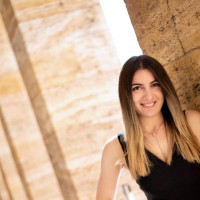Journal Boards
Editor in Chief
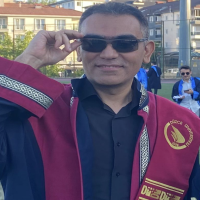
Editorial Secretariat

Section Editors
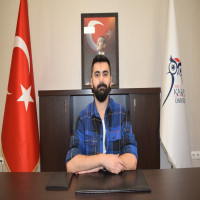






 Web
Web
Osmaniye Korkut Ata Üniversitesi Arkeoloji Bölümü öğretim üyesi Dr. Öğr. Üyesi Ayça Gerçek, Ankara Üniversitesi Dil ve Tarih-Coğrafya Fakültesi Klasik Arkeoloji Bölümü’nden mezun oldu. Yüksek Lisans ve Doktora eğitimi de yine Ankara Üniversitesi’nde tamamladı. Doktora eğitimi sırasında DAAD - Alman Akademik Değişim Servisi bursiyeri olarak Almanya’da Münster Üniversitesi’nde, Doktora sonrasında ise DAI Alman Arkeoloji Enstitüsü’nün davetlisi olarak Münih’te ve Oxford Üniversitesi & BIAA Martin Harrison Bursu ile Oxford Üniversitesi’nde çalışmalar yürütmüştür. Öğrencilik yıllarından itibaren Arykanda, Zeugma, Salamis, Doliche, Tatarlı Höyük ve Satala kazıları ve Kilikya Tarihi Coğrafyası yüzey araştırmasında çalışmıştır. Halen Patara Kazıları’nda bilimsel ekip üyesi ve Elaiussa Sebaste Kazı Başkan Yardımcısı ve olarak görev yapmaktadır.
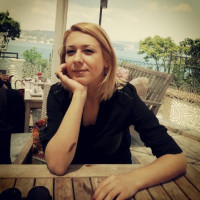
Lisans eğitimini, Marmara Üniversitesi, Fen-Edebiyat Fakültesi, Tarih programında; yüksek lisans eğitimini Marmara Üniversitesi Türkiyat Araştırmaları Enstitüsü Ortaçağ Tarihi Anabilim Dalı’nda tamamladı. 2021 yılında, İstanbul Medeniyet Üniversitesi Lisansüstü Eğitim Enstitüsü’nde “II. Theodosius’un Batı Politikası: Diplomasi ve Savaş” başlıklı tez çalışmasıyla doktora eğitimini tamamlayarak 2022 yılında İzmir Kâtip Çelebi Üniversitesi Sosyal ve Beşeri Bilimler Fakültesi Tarih Bölümü Eskiçağ Tarihi Anabilim Dalı’nda göreve başladı. Türk Tarih Kurumu ve TÜBİTAK’ın çeşitli projelerinde ve kazı ve yüzey araştırmalarında araştırmacı olarak yer aldı. Geç Antik Çağ ve Geç Roma İmparatorluk Tarihi üzerine çalışmaları bulunmaktadır.
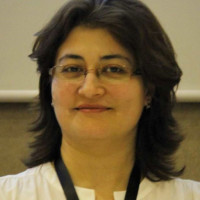
Dilara Uslu, who works in the Department of History, Faculty of Science and Letters, Bilecik Şeyh Edebali University, in the field of Turkish Republic History, was born on May 17, 1982, in the Keçiören district of Ankara. She completed her primary, secondary, and high school education in Istanbul and enrolled in the Department of History at the Faculty of Science and Letters at Sakarya University in 1999. After graduating from this department in 2003, Uslu began working as a lecturer in the Department of Atatürk Principles and Revolutionary History at Sakarya University in the same year. She served as Deputy Head of the Department of Atatürk Principles and Revolutionary History between 2004-2010 and 2014-2015. In 2006, he completed his master's thesis titled “Turks and Armenians According to The Times Newspaper (1918-1919)” and began his doctoral studies in the 2006-2007 academic year. In 2013, he completed his doctoral thesis titled “Greek-Turkish Solidarity in the National Struggle According to the Turkish and Western Press (1919-1922)” and received his doctorate. On December 31, 2015, he was appointed as an Assistant Professor in the Department of History, Faculty of Science and Literature, Bilecik Şeyh Edebali University, in the field of Turkish Republic History. He has participated in numerous international symposiums both domestically and abroad (Kazakhstan and Spain). He served as the Head of the Department of History of the Republic of Turkey between 2017 and 2019. He continues to serve as the Director of the Center for Women's Studies, Research, and Application, which he founded and has been operating at Bilecik Şeyh Edebali University since April 4, 2018.
Translated with DeepL.com (free version)
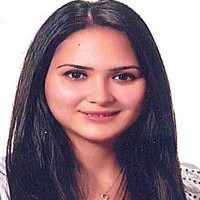
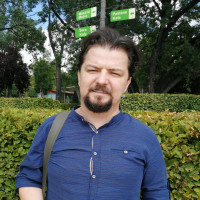







Doç. Dr. GALİP ÇAĞ
1979 yılında Adapazarı’nda doğdu. Aslen Makedonya, Kırçovalıdır. Adapazarı’nda, Hakkı Demir İlkokulu, Mithatpaşa Ortaokulu ve Arifiye Anadolu Öğretmen Lisesi’ni bitirdi. Gazi Üniversitesi Fen-Edebiyat Fakültesi Tarih Bölümü’nde lisans, Sakarya Üniversitesi’nde de yüksek lisans (Yeniçağ) ve doktora (Tarih Anabilim Dalı) eğitimlerini tamamladı. 217. Nolu Tapu Tahrir Defterine Göre Paşa Sancağı ve 16.-17. Yüzyıllarda Osmanlı Hâkimiyetinde Manastır (Bitola) başlıklı tezleri hazırladı. Sakarya, Çankırı Karatekin ve Gazi Üniversitelerinde bölüm başkanlığı ve anabilim dalı başkanlıkları yanında dekan yardımcılığı görevlerini yürüttü. Başta Balkanlar olmak üzere tarihin farklı alanlarına dair dersler verdi. Birçok makale ve 6 adet akademik kitap kaleme aldı. Halen Bolu Abant İzzet Baysal Üniversitesi, Fen Edebiyat Fakültesi, Tarih Bölümü, Yeniçağ Anabilim Dalı’nda lisans, yüksek lisans ve doktora aşamalarında dersler vermektedir. Halen, Ankara’da yaşamaktadır.
Dr. Galip Çağ’ın aşağıdaki akademik çalışmalarının yanında;
- 16. ve 17. Yüzyıllarda Rumeli’de İdari ve İktisadi Yapı, Bir Osmanlı Şehri Manastır (2022, Selenge Yayınları)
- Balkanlar, Öteki Avrupa’nın Kökleri ve İnşası (2021, Otorite Kitap)
- 16. Yüzyılda Osmanlı İdaresinde Bir Rumeli Şehri Kırçova/Kicevo, İdari-İktisadi-Sosyal Durum (2020, Otorite Kitap)
- Nurettin Topçu’yu Anlamak, Izdırabın Dili(2020, Otorite Kitap)
- İbn Haldun Umranında Osmanlı Devleti’nin Kuruluşu(2015, Lotus Yayınları)
- Uluslararası İlişkiler ve Tarih (2015, Lotus Yayınları)
- Avrupa’nın Ötekisi Balkanlar(2012, Çankırı Karatekin Üniversitesi Yayınları)
- Avrasya Paradoksu Beklentiler ve Endişeler(2013, Nobel Yayınları)
öyküleri ve inceleme yazıları Birikim, Edebiyatist, Edebiyat Ortamı, Mahalle Mektebi, Dergah, Hece Öykü, Yedi İklim, Dil ve Edebiyat, İtibar, Mahur Beste, Telmih, Ketebe Piyan, Butimar, Hayal Bilgisi, Hisdüşüm, Serçe Edebiyat, Mahfel, Kurgan Edebiyat, Tahrir, Ayarsız, Arka Kapak, Bağlaç, Sandıkiçi, Balkan Türküsü, Karınca Kardeş, Arasta, Ahval, Kadran, Bengisu, Çakırdikeni dergilerinde yayımlandı. Zaman zaman Ruhunakitap, TASAM, KAFKASSAM gibi online platformlarda yazmaya devam ediyor.
Dr. Galip Çağ’ın “Komşu Kapısı (2014, Meserret Yayınları)”,“Kale Arkası (2015, Meserret Yayınları)” ve “Gidiyoruz Çocuk (2019, Kent Kitap)” isimleriyle 3 de öykü kitabı bulunmaktadır. Akşam Pazarı isimli 4. kitabı da yayınevi tarafından baskıya hazırlanmaktadır.
Ayrıca; “Bisiklet Dağı” öyküsü Sakarya Büyükşehir Belediyesi, Sait Faik Abasıyanık Öykü Yarışması(2021) Mansiyon Ödülüne layık görülmüştür.
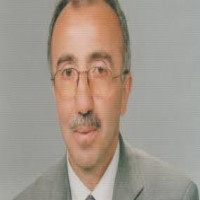
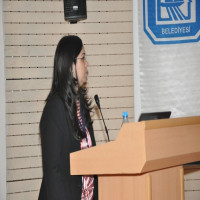
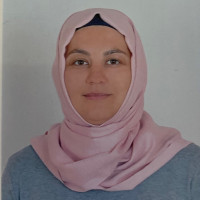
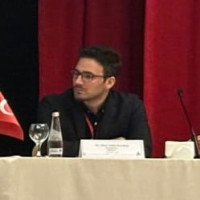

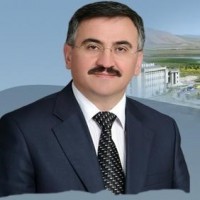
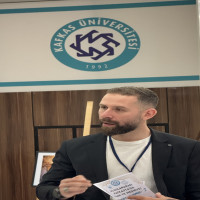
Lisans eğitimini Kafkas Üniversitesi Fen-Edebiyat Fakültesi Tarih Bölümü’nde, yüksek lisansını ise aynı üniversitenin Sosyal Bilimler Enstitüsü’nde tamamladı. 2017 yılında Kafkas Üniversitesi’nde Araştırma Görevlisi olarak akademik kariyerine başladı. 2022 yılında Atatürk Üniversitesi Türkiyat Araştırmaları Enstitüsü’nde hazırladığı “İngiliz Sir Philip Henry Wodehouse Currie'nin İstanbul Büyükelçiliği (1893–1898)” başlıklı tez çalışmasıyla doktora eğitimini tamamladı. 2023 yılında Kafkas Üniversitesi Fen-Edebiyat Fakültesi Tarih Bölümü Yakınçağ Tarihi Anabilim Dalı’nda Dr. Öğretim Üyesi olarak göreve başladı. Akademik çalışmalarını Yakınçağ dönemi Osmanlı-İngiliz ilişkileri, uluslararası ilişkiler ve diplomasi alanlarında yoğunlaştıran Bay, ayrıca Doğu Akdeniz dünyası üzerine araştırmalar yürütmektedir.
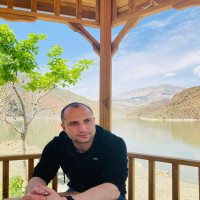
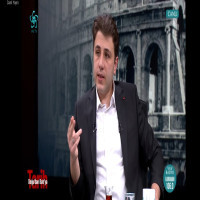
Advisory Board
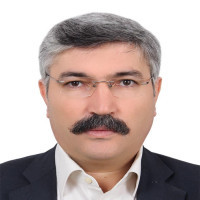






 Web
Web
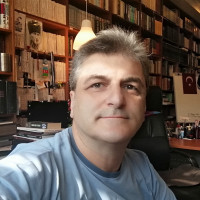
22 Ocak 1968’de Trabzon’da doğdu. İlk, orta ve lise öğrenimini aynı vilayette tamamladıktan sonra, 1985 yılında Atatürk Üniversitesi, Fen-Edebiyat Fakültesi Tarih Bölümü’nde yüksek öğrenimine başladı. Tarih bölümünü Haziran 1989’da birincilikle bitirdi. Aynı Üniversitede, yüksek lisans ve doktora eğitimi aldı. 1990 yılında Atatürk Üniversitesi, Atatürk İlkeleri ve İnkılap Tarihi Ensitüsü’nde araştırma görevlisi oldu. 1991 yılında “İstanbul Basınında Vilâyât-ı Şarkiye Meselesi” adlı master teziyle yüksek lisansını, 1996 yılında da “Türkiye ve Mavera-yı Kafkasya İlişkileri İçerisinde Trabzon ve Batum Konferansları ve Antlaşmaları (1917-1918)” adlı çalışmayla doktorasını tamamladı. 2 Ağustos 1996 tarihinde Sakarya Üniversitesi, Tarih Bölümü’ne öğretim üyesi olarak atandı ve halen aynı üniversitede çalışmaya devam etmektedir. California’da bulunan Stanford Üniversitesi başta olmak üzere, yurtdışındaki çeşitli üniversitelerde kısa ve uzun sürelerle “misafir öğretim üyesi” olarak bulundu. 2006’da doçentliğe, Temmuz 2011’de ise Türkiye Cumhuriyeti Tarihi anabilim dalında profesörlüğe yükseltildi. Ağustos 2009-Ağustos 2014 tarihleri arasında Türk Tarih Kurumu bünyesindeki Ermeni Masası’nda çalıştı. Yazar halen Sakarya Üniversitesi’nde öğretim üyesi olarak çalışmaya devam etmekte, ilgi alanları, Atatürk ve Cumhuriyet Tarihimizin çeşitli evrelerine ait lisans ve lisansüstü seviyede dersler vermektedir. Evli olan Prof.Dr. Şahin’in, iki yüzden fazla makale, bildiri, editörlük, yayına hazırlama, ansiklopedi maddesi, kitap bölümü ve kitapları bulunmaktadır.
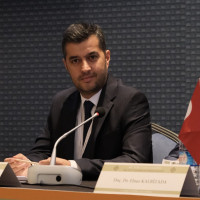
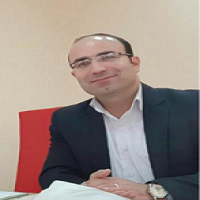


 Web
Web

Editorial Board
Born in Belgrade 1963. Architectural historian. Graduated at Faculty of Philosophy in 1987, in which defended master (1991) and PH.D. degree (1995). Full profesor at the Department for Art History (2006).Author of 18 monograph books and editor of 7. Participated on 85. conferences in Serbia, Turkey, Russia, Croatia, Slovenia, Poland, USA, Brasil, etc.


Born 29 December 1962 in Leverkusen, Germany.
1982 to 1983 Military service in Neumunster and Hamburg, Germany.
1984 to 1993 Academic studies at the University of Cologne: History of Law, Byzantine Studies, Ancient History, Medieval and Early Modern History; additional courses in Archaeology, Art History, Classics, and Ethnology.
1986 to 1990 several internships at the Roman–Germanic Museum in Cologne: Methods of archaeological research and presentation, Exhibition concepts etc.
1990 Magister Artium (Master of Arts), supervisor: Prof. Peter Schreiner.
1991 to 1993 fellow of German Academic Scholarship Foundation (Studienstiftung des deutschen Volkes) (Bonn).
1993 Promotion (PhD) (summa cum laude), supervisor: Prof. Peter Schreiner.
1994 to 1995 Research fellow of Alexander von Humboldt-Foundation (Bonn).
1995 to 1997 Research fellow of German Research Foundation (DFG) (Bonn).
Since 1997 employee at the Austrian Academy of Sciences, Vienna; Senior Scientist.
1999 professorial qualification (Habilitation).
Since 2007 adj. Professor (apl. Univ. Professor) for Byzantine Studies at the University of Cologne.
Since 2015 Project leader Asia Minor / Anatolia of the long term project Tabula Imperii Byzantini (TIB) of the Austrian Academy of Sciences.
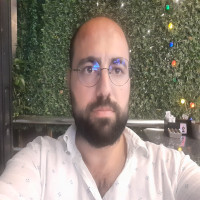
Charles Brian Rose is an American archaeologist, classical scholar, and author. He is the James B. Pritchard Professor of Archaeology at the University of Pennsylvania in the Classical Studies Department and the Graduate Group in the Art and Archaeology of the Mediterranean World. He is also Peter C. Ferry Curator-in-Charge of the Mediterranean Section of the Penn Museum, and was the museum's Deputy Director from 2008-2011. He has served as the President of the Archaeological Institute of America,[1] and currently serves as director for the Gordion excavations and as Head of the Post-Bronze Age excavations at Troy.[2] Between 2003 and 2007 he directed the Granicus River Valley Survey Project, which focused on recording and mapping the Graeco-Persian tombs that dominate northwestern Turkey.
Born in 1974, in Constanța, Romania. BA in History, at the ”Ovidius” University, Constanța (1998); Ph.D. in History, at the ”Alexandru I.Cuza” University, Iași, Romania (2006).
The main areas of research are: International Relations in South-East Europe, in the XXth century, United States policy to the South-East Europe in the same period.
The doctoral thesis, with the title United States policy regarding Turkey between 1943 and 1952 was published, in Romanian language, in 2006, at the Institutul European Publishing House. Other books (all in Romanian): The XXth century history:1939-1945. The Diplomacy of war, in 2011 (co-author); Romania – Turkey Republic. Diplomatic relations, vol. I, 1923 – 1938, 2011, (co-author); Readings and documents about Romanian Modern History,1774-1918, two volumes, 2009, (co-author); over fifty papers published in the scientific indexed journals and collective volumes; over twenty participations at the conferences organized in Romania, Moldavian Republic, Bulgaria, Turkey, Italy; research stays conducted in Turkey (2010).
Current courses taught: International Relations in the South-East Europe in the XXth century, History of the Romanian in Modern Times (XIXth) century, World Political Order.

Professor Ergün Laflı is a classical archaeologist at the Dokuz Eylül University in Izmir, chairs the Division for Medieval Archaeology and is the founding director of the Center of the Archaeology of Western Anatolia (EKVAM). He was born in 1975 in Mersin, Turkey. He attended to the Sainte-Pulchérie French School in Istanbul and Tarsus American College, both in Turkey. He holds a B.A. degree from the University of Ankara (1996), a M.A. from the University of Tübingen (1999) and a Ph.D. from the University of Cologne (2003), all in classical archaeology. Since 2006 he edited or co-authored seven books on Hellenistic, Roman and Early Byzantine terracottas, ceramics, metal figurines, glass finds and inscriptions from Asia Minor. Between 2005 and 2009 he directed an archaeological field project in Hadrianopolis, a Roman and Early Byzantine site in north-central Turkey and the main focus of this book. He organized numerous archaeological congresses in Izmir and published various material groups from Classical Anatolia.
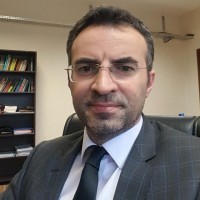
1978 yılında Ordu’da doğdu. Niğde Üniversitesi Eğitim Fakültesi’nden (1999) mezun oldu. Erciyes Üniversitesi Sosyal Bilimler Enstitüsü Tarih Anabilim Dalında yüksek lisansını(2004) ve doktorasını (2012) tamamladı. 1999-2013 yılları arasında Milli Eğitim Bakanlığında öğretmen ve okul yöneticisi olarak çalıştı. Karabük Üniversitesi Uluslararası İlişkiler Bölümü Siyasi Tarih Anabilim Dalı’nda 2013 yılında Dr. Öğr. Üyesi, 2018’de ise doçent, 2024'te ise profesör oldu. Akademik işlerinin yanısıra bölüm başkanlığı, enstitü müdür yardımcılığı, dekan yardımcılığı ve dekanlık gibi idari görevler üstlendi.Ersin Müezzinoğlu halen aynı yerde Türk Siyasal Hayatı, Türk Dış Politikası ve Modern Balkanlar Tarihi üzerine çalışmalarını sürdürmektedir. Belirtilen konularda kitap, kitap bölümü ve makaleleri bulunmaktadır.

Dr Galina M.Yemelianova holds a PhD in Arab and Islamic Studies from the Institute of Asian and African Studies (ISAA, MGU). She has researched the history and Islam-related contemporary politics of the Middle East and Eurasia over three decades. Between 1996 and 2017 she researched and taught at the Centre for Russian, European and Eurasian Studies at the University of Birmingham UK, where she pioneered and taught the Masters course on the Caucasus and Central Asia. She is the author/editor of ten books, including Yemen under Ottoman Rule 1538-1635 (Nauka, 1988); Russia and Islam: A Historical Survey (Palgrave 2002); Islam in post-Soviet Russia (Routledge, 2003); Radical Islam in the former Soviet Union (Routledge, 2010); Many Faces of the Caucasus (Routledge, 2014); Meskhetian Turks in Kabardino-Balkaria (IGI RAN, 2019); Muslims of Central Asia: An Introduction (Edinburgh University Press, 2018); Routledge Handbook of the Caucasus (Routledge, 2020); Islamic Leadership and the State in Eurasia (Anthem Press, 2022) and Muslims of post-Communist Eurasia (Routledge, 2022). She is an editor of Caucasus Survey (London), a member of the editorial boards of Europe-Asia Studies (Glasgow) and Oriens (Moscow) and Universal Journal of History and Culture (Sakarya). She is currently affiliated to the Centre of Contemporary Central Asia and the Caucasus at the School of Oriental and African Studies in London.

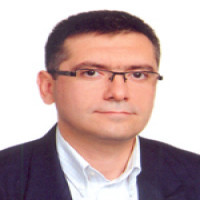
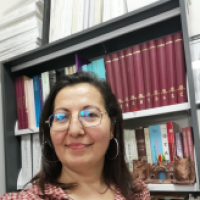
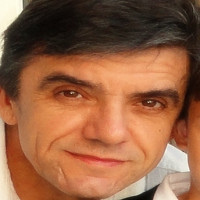
CURRICULUM VITAE
NAME AND ACADEMIC TITLE
________________________________________
Prof. Ivelin Argirov Ivanov, PhD
CONTACT INFORMATION
________________________________________Name: Ivelin Argirov Ivanov
Gender: Male
Nationality: Bulgarian
Date of birth: 9 July 1967
Phone number: + 359 887 867375
Email: ivoar@abv.bg
ACADEMIC AFFILIATION
________________________________________
Department of Ancient and Medieval History, Faculty of History, St. Cyril and St. Methodius University
2 Theodosij Tarnovski Str., Room 528
5000 Veliko Tarnovo, Bulgaria
Phone: +359 618 235
PRESENT OCCUPATION ________________________________________
October 2015 to present, Professor in Medieval History at the Department of Ancient and Medieval History, St. Cyril and St. Methodius University of Veliko Tarnovo, Bulgaria.
GRANTS, SCHOLARSHIPS AND RESEARACH MOBILITY
________________________________________
April-June 2019, Latvian state reserach scholarships;
15 November, 2018: Organizer and Moderator of the Round Table "The Latvian and the Bulgarian Way in History" dedicated to Latvia 100, held at the University of Veliko Tarnovo, Bulgaria. [ http://www.uni-vt.bg/bul/event.aspx?evid=rnd-1-1164&zid=1];
April-June 2018, Research scholarship from the Latvian Agency of Education;
June-July 2016, Research visit at the Arni Magnusson Institute in Reykjavik, Iceland;
May-June 2014, Scholarship from the Bulgarian ministry of education for research at the Ceraneum Institute, Lodz, Poland;
April-June 2013, Pesearch scholarship from the Latvian Agency of Education;
May-June 2011, Scholarship from the Bulgarian ministry of education for a research at the Jagiellonian University, Krakow;
May-June 2010, Research grant from the Paul Mellon Centre for Studies in British Art and Architecture, London;
April-June 2007, Postdoctoral research scholarship at the Warburg Institute, London.
RESEARCH INTERESTS
________________________________________
The Latvian lands during the Viking Age;
The Impact of Crusades on Latvian and Bulgarian lands in the 13th century;
War and Peace in Medieval Southeastern Europe;
Latvia and Bulgaria at the end of World War I and Post-War Europe.
PROJECTS INVOLVED
________________________________________
2016 - to present day: Manager of a project aimed at establishing a new research journal in the humanities and social sciences (VTU Review: Studies in the Humanities and Social Sciences);
2012-2014: Organizing committee member of Erasmus intensive program “Standards of Everyday Life in the Middle Ages and in Modern Times”;
2014-2015: Summer School lecturer in the“Go East” program of DAAD, St. Cyril and St. Methodius University, Bulgaria.
MEMBERSHIP
________________________________________2016- to present day: Co-editor of the academic journal “VTU Review: Studies in the Humanities and Social Sciences” ISSN: 2603-3283 (Online) ISSN: 2603-3070 (Print)
2015 to present, Secretary and a project coordinator of the Centre of Medieval Studies (Faculy of History, St. Cyril and St. Methodius University, Bulgaria);
2014 to present, Member of the Ceraneum Institute (Waldemar Ceran Research Centre for the History and Culture of the Mediterranean Area and South-East Europe) [http://ceraneum.uni.lodz.pl/en/about-ceraneum-2/members];
2015 to present, Member of Porta Historica (Network of Scholars and Institutions Editing Historical Sources). [http://www.portahistorica.eu/].
SKILLS AND QUALIFICATIONS
________________________________________
Computer skills: Microsoft Word, Microsoft Power Point, Netscape Communicator, Internet Explorer.
Languages: Bulgarian (native), English (writing, reading, speaking), Latin (writing, reading), good working knowledge of French and Russian.
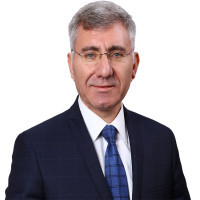

Dr. Mansour Amini is an interdisciplinary researcher and a senior lecturer from the School of Languages, Literacies, and Translation, Universiti Sains Malaysia (USM). He has a Diploma in Mathematics and Physics, a B.A. in English Language and Literature, an M.A. in English Language Teaching, and a PhD in Translation Studies. He has published articles in Translation, Education, Humanities, and Social Sciences, and is the principal investigator of several research projects. He has conducted workshops, seminars, and talks on Thesis Writing and Research Methodology in Malaysia, Thailand, Indonesia, Iran, and China. Dr. Mansour Amini is a reviewer, editing manager, and editorial board member of several academic journals. He has tried to link research with teaching practice by applying the lessons learned from authentic research outputs to teaching scenarios.
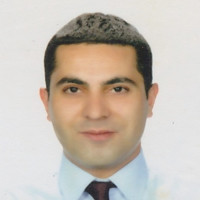
17.04.1979 tarihinde Sivas’ta dünyaya gelen Mikail Acıpınar ilk ve orta öğrenimini aynı şehirde tamamladıktan sonra 1998-99 öğretim yılında Ege Üniversitesi Edebiyat Fakültesi Tarih Bölümü’nde yüksek öğrenimine başladı. Dört yıllık öğreniminin ardından, hazırladığı bitirme tezi ile 2002 yılında Ege Üniversitesi Edebiyat Fakültesi Tarih Bölümü’nden mezun oldu. 2002-2003 öğretim yılında Ege Üniversitesi Sosyal Bilimler Enstitüsü Yeniçağ Tarihi Anabilim Dalı’na başladığı Yüksek Lisans eğitimini 2005 yılında savunduğu “XVI. Yüzyılda Balat Kazâsı (Tahrir Defterlerine Göre)” başlıklı teziyle tamamladı. Aynı yıl Ege Üniversitesi Sosyal Bilimler Enstitüsü Yeniçağ Tarihi Anabilim Dalı’nda Doktora Eğitimine başladı.
2005, 2007 ve 2008 yıllarında kazandığı çeşitli yurtdışı burslarıyla İtalya’nın farklı şehirlerinde sertifikalı dil eğitimleri aldı. Venedik, Floransa ve Lucca’da bulunan devlet arşivleri ve kütüphanelerinde alanıyla ilgili çalışmalar yaptı. 26.10.2011 tarihinde “Osmanlı-Floransa İlişkileri (XV-XVI. Yüzyıl)” başlıklı tezini başarıyla savunarak “Doktor” unvanı almaya hak kazandı. 2013 yılında İzmir Katip Çelebi Üniversitesi Tarih Bölümünde Yardımcı Doçent olarak görev yapmaya başladı. 2017 yılında Doçent unvanını almaya hak kazandı. 2024 yılında ise Profesör olarak atandı. İngilizce, İtalyanca ve Osmanlıca gibi kaynak dillerine vâkıf olan Mikail Acıpınar, 2004 yılında Ege Üniversitesi Edebiyat Fakültesi Tarih Bölümü’nde başladığı görevine İzmir Katip Çelebi Üniversitesi Tarih Bölümünde devam etmektedir.

Mohammad Saleh Bani Issa earned a PhD in philosophy / political science from India's University of Mumbai in 1999, focusing on the Arab-Israeli conflict and Middle Eastern peace. From 2005 until 2012, he served as a researcher for the Royal Committee for Jerusalem Affairs, which was led by His Royal Highness Prince Hassan bin Talal.
From 2012 to 2019, he was a professor at the Department of Political Science in the Master's Program at Middle East University. He also served as Dean of the College of Arts and Sciences from 2014 to 2016 and Head of the Department of Political Science from 2016 to 2017. He was appointed to Associate Professor of Political Science on February 18, 2017.
He has been a professor in the Department of Political Science in the bachelor's program at Jadara University since 2019, where he served as Deputy Dean of the College of Law from 2019 to 2021, Head of the Department of Political Science from 2019 to the present, Deputy Dean of the College of Law from 2023 to 2024, and Responsible for the Quality and Quality Assurance File in the College of Law 2020. - now. He was elevated to Professor Doctor of Political Science on May 28, 2024.
His research interests include the Arab-Israeli conflict, international relations and diplomacy, international politics, Middle Eastern relations, political development, and future studies. He has extensive study and research experience, as well as participation in several local and Arab seminars, events, and conferences.



Muhidin Mulalić is currently a professor at the Department of Political Science and International Relations, International University of Sarajevo, Bosnia and Herzegovina. He obtained his Ph.D. in 2007 at the International Islamic University Malaysia (IIUM), Malaysia. He began his academic career at the University Tenaga Nasional (UNITEN), Malaysia, where he taught for five years at the Institute of Liberal Studies. In 2007, Dr. Mulalic returned to Bosnia and Herzegovina and joined the Department of Social and Political Sciences at the International University of Sarajevo. At the International University of Sarajevo he began developing his academic-administrative career by holding the following positions: Program Coordinator of Social and Political Sciences (2007-2010), Vice-Rector for Academic and Student Affairs (2010-2011), Vice-Dean of Faculty of Arts and Social Sciences (2011-2013), the Dean of Faculty of Arts and Social Sciences (2013-2016) and the Director of the Balkan Studies Center (2019-2023)
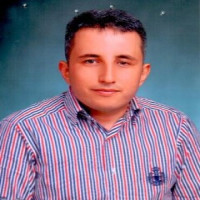
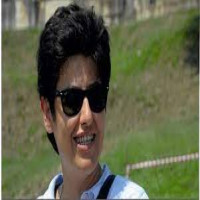
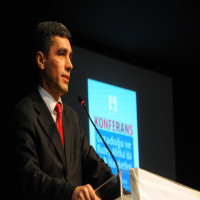






Stipica Grgić (born 1982) is a Research Associate at the Croatian Institute of History’s Department of Modern History. He finished his PhD in History (Administration in Sava banovina 1929-1939: Between the State Centralism and Subsidiarity) at the University of Zagreb’s Centre for Croatian Studies in 2014. In his most recent publication, Maček is our leader! Municipal elections in Banovina of Croatia (co-authored with Tomislav Kardum; Zagreb: Srednja Europa, 2023) Grgić offers some fresh insights into the political, national, and socio-economic situation in Croatia and Yugoslavia surrounding the events leading up the Second World War. Stipica Grgić is a member of the research groups “Researching emotions in the (re)construction of diaspora identity: Croats in Australia and New Zealand 1945-1991 – CROCEANIA” and “’Change is the Only Constant’: Urban Life and Development in Croatia in 19th and 20th Century”, projects financed by the Croatian Science Foundation and the European Commission (NextGenerationEU). His research focuses on social, political, and everyday history of Croatia and neighbouring countries in the late 19th and 20th century.
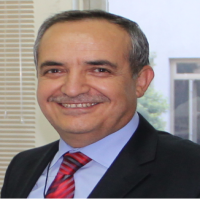
1984 yılında Ankara Üniversitesi Dil ve Tarih Coğrafya Fakültesi Ortaçağ Tarihi Kürsüsü’nden mezun oldu. Aynı Yıl mezun olduğu Fakülte’de Asistan olarak göreve başladı. 1988 yılında Yüksek Lisansını, 1995 yılında ise Doktora eğitimini tamamladı.
1989-1990 yılları arasında Mısır Arap Cumhuriyeti’nde burslu olarak ňaraştırma ve incelemelerde bulundu.
1995-1998 yılları arasında Sivas Cumhuriyet Üniversitesi’nde, 1998- 2003 yılları arasında ise Afyon Kocatepe Üniversitesi’nde, Yardımcı Doçent olarak Ortaçağ devri Türk - İslam tarihine ait Lisans ve Yüsek Lisans derslerini yürüterek akademik faaliyetlerini devam ettirdi.
2003 yılından itibaren Gazi Üniversitesi Fen-Edebiyat Fakültesi’nde öğretim üyesi olarak akademik faaliyetlerini devam ettiren Süleyman Özbek; 2008-2010 yıllarında Bosna Hersek Cumhuriyeti, Tuzla Üniversitesi’nde ve 2010-2011 yıllarında ise Suriye Arap Cumhuriyeti, Haleb Üniversitesinde misafir öğretim üyesi olarak Türk Tarihi ve Türk Kültürü dersleri verdi.
2013 yılında Doçent, 2019 yılında profesör payesini alan Süleyman Özbek Halen Hacı Bayram Veli Üniversitesi Edebiyat Fakültesinde akademik çalışmalarını devam ettirmektedir.
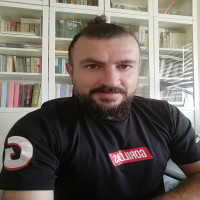
EDİTÖR
Foreign Language Advisor
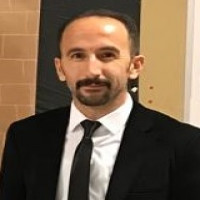
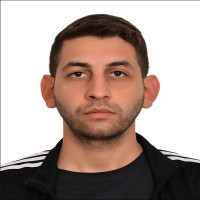
Layout Editor

Proofreader
